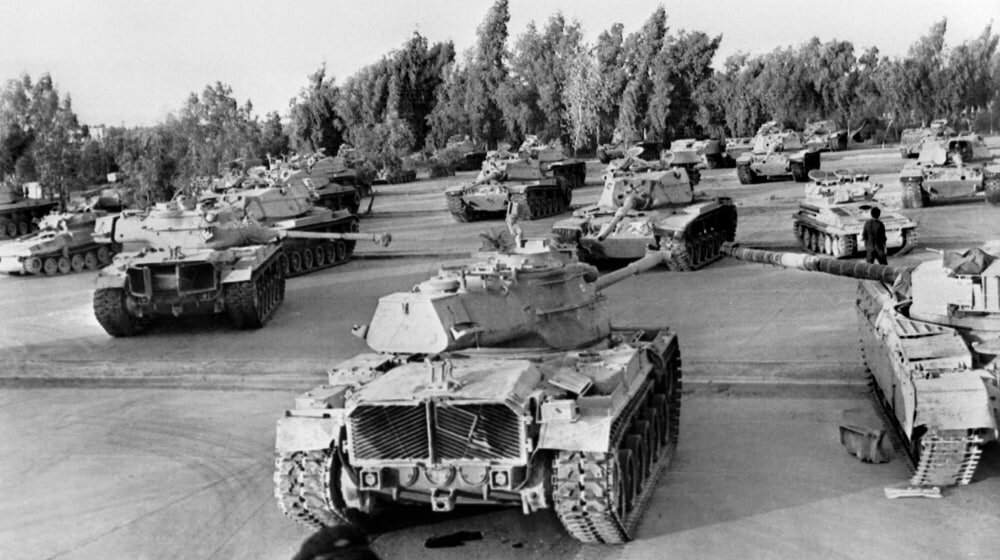The day Saddam Hussein initiated war on Iran

TEHRAN - On September 22, 1980, months after the victory of the Islamic Revolution in Iran, the army of the Iraqi Ba’athist regime led by Saddam Hussein invaded the Iranian border towns in the southwestern province of Khuzestan and launched a massive aerial bombardment of Iran, igniting an eight-year conflict with Iranians.
The Iranians revolted against invaders to expel the invaders from their occupied soil. The Saddam regime, which received all-out support from the big powers, imposed the war on Iran that lasted until the summer of 1988.
Since the beginning of the war, Iran demanded that Iraq be officially declared as the initiator of the war. However, neither the Iraqi Ba’athist regime nor any of the major powers were willing to officially declare that the Saddam regime initiated the war against Iran.
The UN Security Council which has the primary responsibility for international peace and security failed to take any action to declare the Saddam regime as the aggressor and initiator of the war. This is while the Ba’athist regime committed different crimes against the Iranian nation, using chemical weapons, firing missiles at civilian targets, bombarding cities and villages during the war, and other vicious acts.
Influenced by big powers, who armed the Saddam regime to the teeth, the Security Council refused to adopt an impartial stance in that regard during the eight years of war.
When Saddam tore up the 1975 Algiers Agreement in front of cameras and then started the war, the Security Council refused to say who started the war and which side violated the principle of Non-Use of Force.
The Iraqi Ba’athist regime used to refer to border skirmishes that preceded the invasion as its pretext for starting the war. The regime claimed that it took action after a long history of border disputes. But the reality is that Saddam couldn't wait to tear up the Algiers agreement amid political instability and fast pace of developments in the post-revolution Iran. He might also have been pushed by hostile Western states that were angered by the victory of the Islamic Revolution.
Instead of the UN Security Council, it was UN Secretary General Javier Perez de Cuellar who declared Iraq as the aggressor and the initiator of the war in his report to the UN body in December 1991.
This action of the UN Secretary General in officially declaring Iraq as the initiator of war endorsed Iran’s right to self-defense.
Moreover, the UN report naturally required Iraq to pay compensation to Iran, which was estimated at about 1 trillion dollars.
This action of the United Nations took place after the continuous political efforts of the Iranian authorities. It is considered a great victory for Iran because it proved Iran's right to self-defense against the aggressor.
This action took place while the propaganda apparatus of the Saddam regime and its backers were trying to manipulate public opinion in the world that Iran was the initiator of the war.
At the start of the war, Saddam was Iraq's undisputed political and military ruler and Iraq's national interests were his personal interests.
There had been border disputes and skirmishes before the start of the invasion which Saddam's regime sought to present as a pretext for attacking Iran. But Saddam must have thought that amid instability and nascent revolution, it was the right time to materialize his malicious goal of seizing part of the Iranian territory.
The Iraqi dictator’s likely goal was to annex some parts of the oil-rich Khuzestan, which has a sizeable ethnic Arab population.
Border skirmishes preceded the invasion. Iraqi President Saddam Hussein claimed that Iran's Islamic government was trying to destabilize his country and the whole Middle East. But the then UN chief rejected that argument.
In a letter to the UN Security Council, Secretary-General Javier Perez de Cuellar in December 1991 blamed Iraq for starting the war.
He rejected the Iraqi regime’s argument that border skirmishes pushed Iraq to invade Iran.
"Even if before the outbreak of the conflict there had been some encroachment by Iran on Iraqi territory, such encroachment did not justify Iraq's aggression against Iran -- which was followed by Iraq's continuous occupation of Iranian territory during the conflict," Javier Perez de Cuellar said.
Iran has always lambasted the Western states’ double standards in dealing with the Iraqi war on Iran, especially given that the same Security Council and Western powers were quick to take action against the regime after it invaded Kuwait on 2 August 1990.
